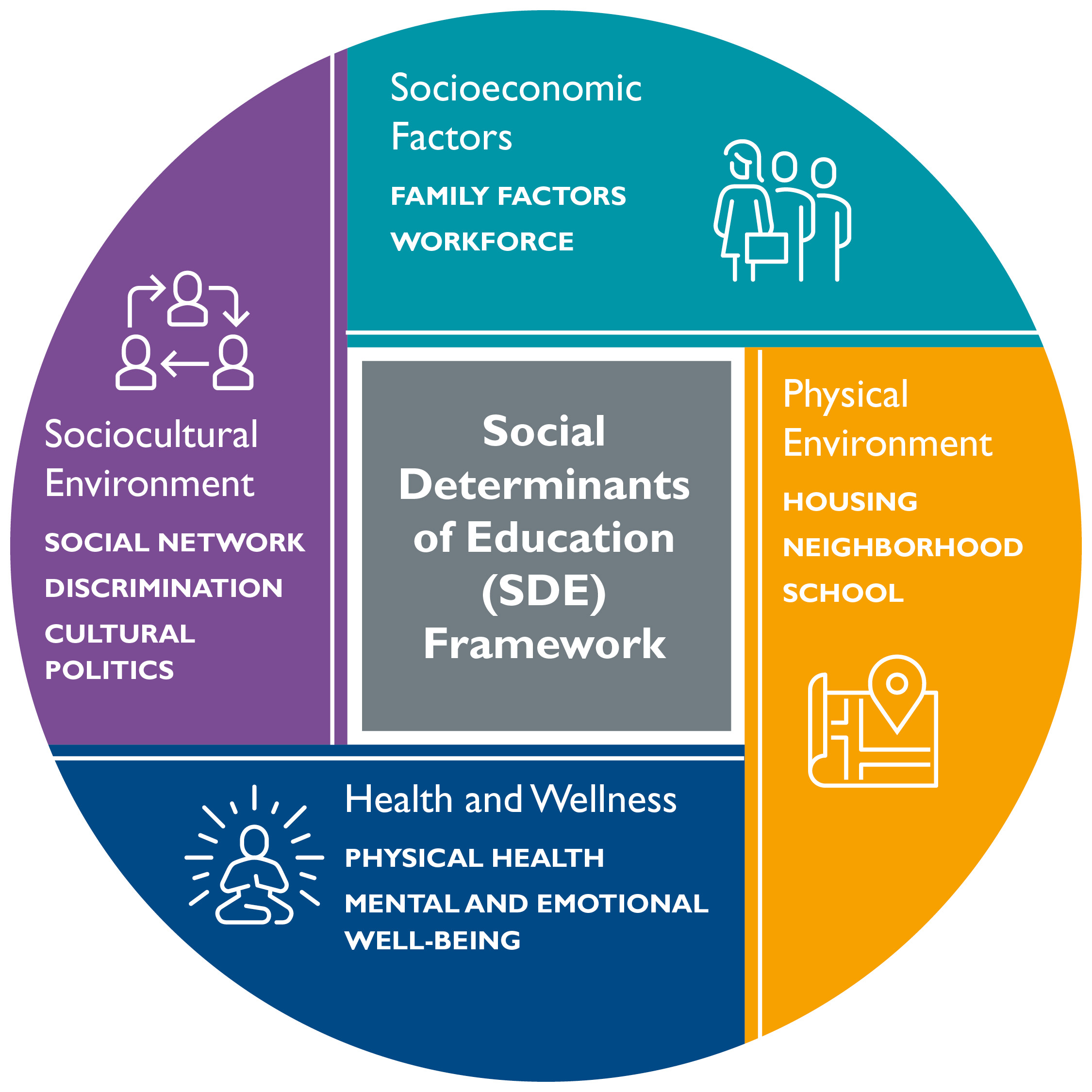
To Improve Academic Achievement, Look Outside the Classroom
New Report Examines Factors that Influence Student Achievement, Urges Investment in “Social Determinants of Education”
Read the full EVES I reportATLANTA — Race- and income-based gaps in academic achievement are a function of deep and historical disparities in our society and our public policies. Schools, alone, cannot overcome these disparities to ensure every child has the high-quality education they need to succeed and thrive. To advance education equity, public policies must address a range of extra-academic issues. That’s the resounding message of a report released today by the Southern Education Foundation (SEF) that provides insights into out-of-school factors affecting education and academic achievement.
The report, Economic Vitality and Education in the South Part I: The South’s Pre-Pandemic Position (EVES I), provides 2019 data for Black and Hispanic children and youth, those living in low-income families, and Black and Hispanic working-age adults on a range of issues. Those include poverty and food insecurity, housing, interaction with the criminal justice system, workplace practices, childcare and early childhood education, and student discipline. The report recommends that state and federal lawmakers adopt a “Social Determinants of Education” framework for public policy to address the persistent disparities affecting academic achievement.
EVES I finds that students of color and students from low-income families face significant inequities in all these areas compared with their White and more affluent peers and indicates how these factors affect students’ ability to access a high-quality education. These disparities are more pronounced across the SEF region, which includes Alabama, Arkansas, Delaware, Florida, Georgia, Kentucky, Louisiana, Maryland, Mississippi, Missouri, North Carolina, Oklahoma, South Carolina, Tennessee, Texas, Virginia, and West Virginia.
EVES I includes a series of federal and state policy recommendations for addressing each of the issues highlighted in the report.
Classic Gallery
Race- and income-based gaps in academic achievement are a function of deep and historical disparities in our society and our public policies. To advance education equity, public policies must address a range of extra-academic issues. A new report explains how. Tweet
Originally founded in 1867 to educate Black children and children from low-income families in the South, the Southern Education Foundation also has a long history of developing leaders in education and was a pivotal source of research and data to support legislation and litigation aimed at fighting inequity in education during the civil rights era. The organization today conducts leadership development, research, and advocacy to improve educational opportunities for students of color and students from low-income families and achieve educational equity in the southern U.S. It is based in Atlanta, Georgia. Find out more at https://southerneducation.org
MEDIA CONTACT: Gretchen Wright, 202-421-5830, [email protected]




